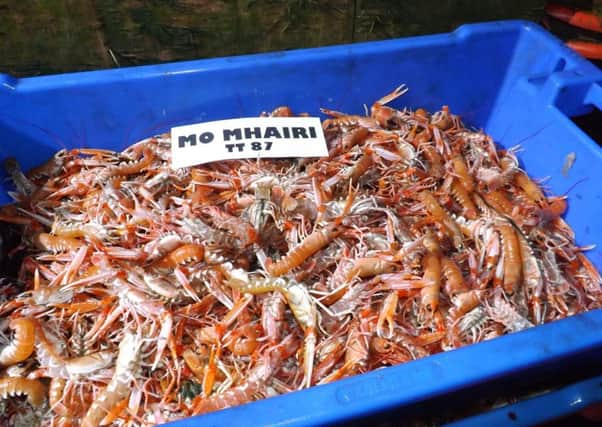Bertie Armstrong: Fishing vital to feeding growing population


Recently I attended a conference hosted by the Royal Institute of International Affairs at Chatham House focused on securing a sustainable food future for our growing global population.
This conference brought together policy-makers, businesses and NGOs to critically consider strategies to tackle the challenges presented by the Sustainable Development Goals and to develop a more robust food system while exploring opportunities for investment, reducing environmental impact and improving health.
Advertisement
Hide AdAdvertisement
Hide AdWhat immediately struck me about the conference was that its principal focus was on agriculture, with little mention of the vitally important role fishing plays in securing a sustainable supply of food for an expanding world population.
This was a pity because according the UN Food & Agricultural Organisation (FAO) around 17 per cent of the world’s protein consumption comes from fish. The FAO also notes that in a world where more than 800 million continue to suffer from chronic malnourishment, and where the global population is expected to grow by another two billion to reach 9.6 billion people by 2050, we must meet the huge challenge of feeding our planet while safeguarding its natural resources for future generations.
What’s more, provided the management of our fisheries is done correctly, seafood ticks all the right boxes when it comes to providing food to fill our stomachs. It is a tasty, nutritious and renewable resource, which has a lower carbon footprint than most other forms of animal protein production.
It is, therefore, somewhat ironic that while most of us love to eat fish, many well-funded environmental NGOs don’t want us to catch fish – or impose such tight restrictions as to make commercial fishing impossible. For reasons best known to them agriculture seems to be acceptable but fishing isn’t. This is a rather blinkered view of food production, which if carried out to the full would actually do immense harm to our global environment.
A sensible food policy needs to utilise a broad spectrum of sustainable resources. If you take away or decrease fishing, then all it does is put even more pressure on our precious land resources to compensate for the protein shortfall created. As the respected international fisheries scientist Ray Hilborn pointed out, about half of increased food production comes from chopping down undisturbed forests. If we stopped fishing, we would need to convert a lot of rainforest to agricultural production to cover the 82 million tons of fish landed in 2006 alone.
Many NGOs have this fantasist picture-postcard vision of fishing compromising of mainly small-scale artisanal fishers. Such fisheries, of course, play a vital role all around the world, but then so too do larger scale fisheries, which are essential for ensuring we have enough food to meet our needs. Larger fishing vessels can sustainably and safely fish in more offshore areas where small boats can’t. One only has to look at Scotland’s mackerel fishery, which is mainly carried out by larger boats in our fleet, but which is carefully managed, fished sustainably and the stock is healthy.
The same is true of our North Sea whitefish fisheries where stocks are in such a healthy state that quota increases were recently agreed for key species such as cod and haddock.
The key, therefore, is to have the right mix of different fisheries which are harvesting stocks at the maximum sustainable yield. Of course, I am not saying that fishing doesn’t have an environmental impact – every type of food production does - but it can be done in a carefully managed way where such impacts are limited and where there is still proper protection of our seas.
Advertisement
Hide AdAdvertisement
Hide AdThere is also the socio-economic importance of our fisheries. FAO estimates that, overall, fisheries
and aquaculture assures the livelihoods of 10–12 percent of the world’s population – a quite mind boggling figure. In Scotland, seafood exports alone are worth £600m to our economy, employing many thousands of people.
These are all compelling reasons why it is so important for Governments and institutions such as the EC to put fishing right at the top of their agendas when it comes to securing our food future.
To ignore the importance of fishing would be madness, especially since nearly three-quarters of the world is covered by sea, making it a vital resource that is essential for the overall wellbeing of the human race and our planet.
• Bertie Armstrong, chief executive of the Scottish Fishermen’s Federation